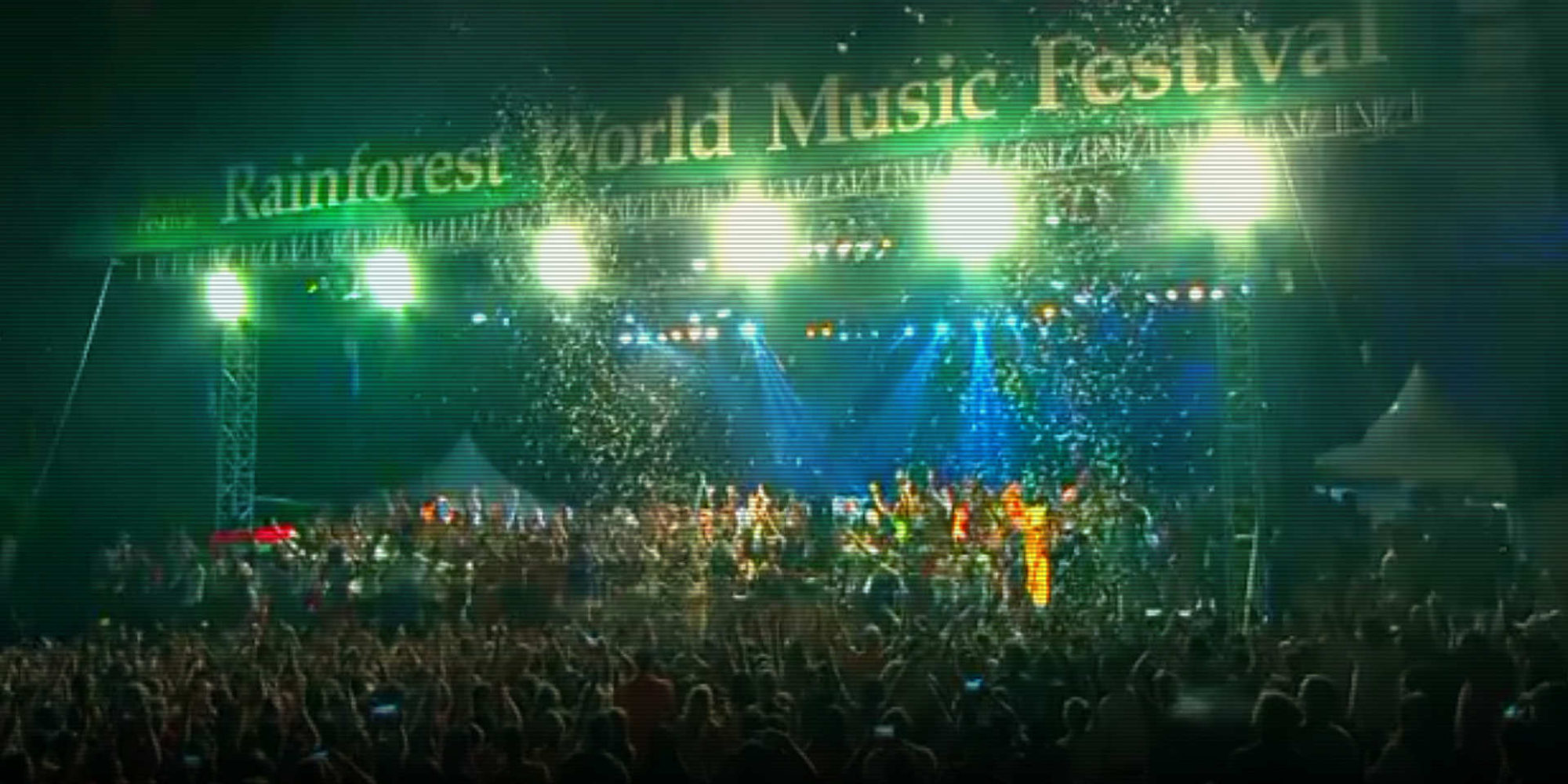There are many good reasons why you should attend the Rainforest World Music Festival (RWMF) at least once in your life. First of all, the stunning location: With its magical rainforest setting, the festival is one of the most scenic music events on the globe. This three-day event is held every summer at the Sarawak Cultural Village near Kuching, a laid-back town on Sarawak, the Malaysian part of the island of Borneo. The festival not only showcases music from all continents, it also offers daytime music workshops, wellness and lifestyle activities, mini sessions, cultural displays, craft displays, food stalls and main-stage evening concerts. Cool vibes are the predominant feeling. Everybody is friendly, polite and open to each other. The very chill atmosphere is reminiscent of the heydays of the hippies in the late 1960s, early '70s.
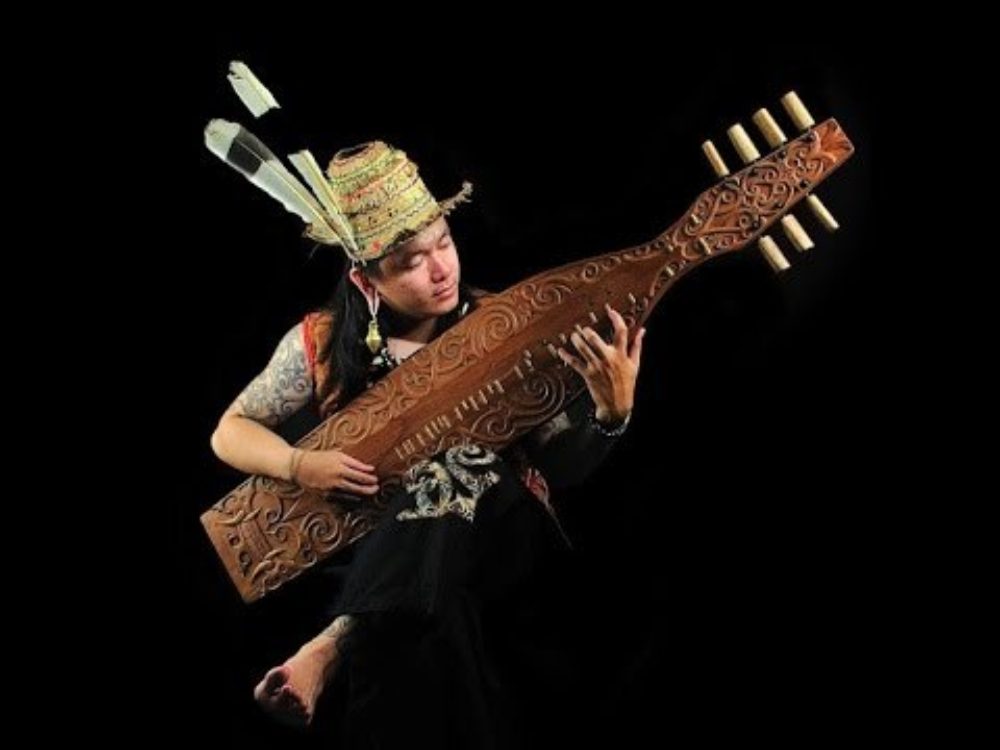
The emblem of the Rainforest World Music Festival is the sapeh (or sape), a traditional wooden lute of Central Borneo. A few decades ago this elegant instrument with three to six strings was hardly played, but this large plucked string instrument has enjoyed a revival. When entering the festival stage one was welcomed by the soft tones of two sapeh players and at the opening ceremony the sapeh was presented by traditional musicians from Sarawak. Sape lessons were held at the Rainforest Music House daily, offering festival attendees the opportunity to learn the basics of this beautiful instrument. In the past, playing the sapeh was restricted to men only, but these days the Sarawak lute is no longer taboo for women.
The theme of this year’s 21st edition, which took place July 13-15, was "Awakening of the Rainforest," which took shape in all kinds of ways. With stage performances indoors in the afternoon, and outdoor stages in the evening ,the festival had so much to offer the audience that one just didn’t have enough time to see and hear all the artists and take part in all the activities.
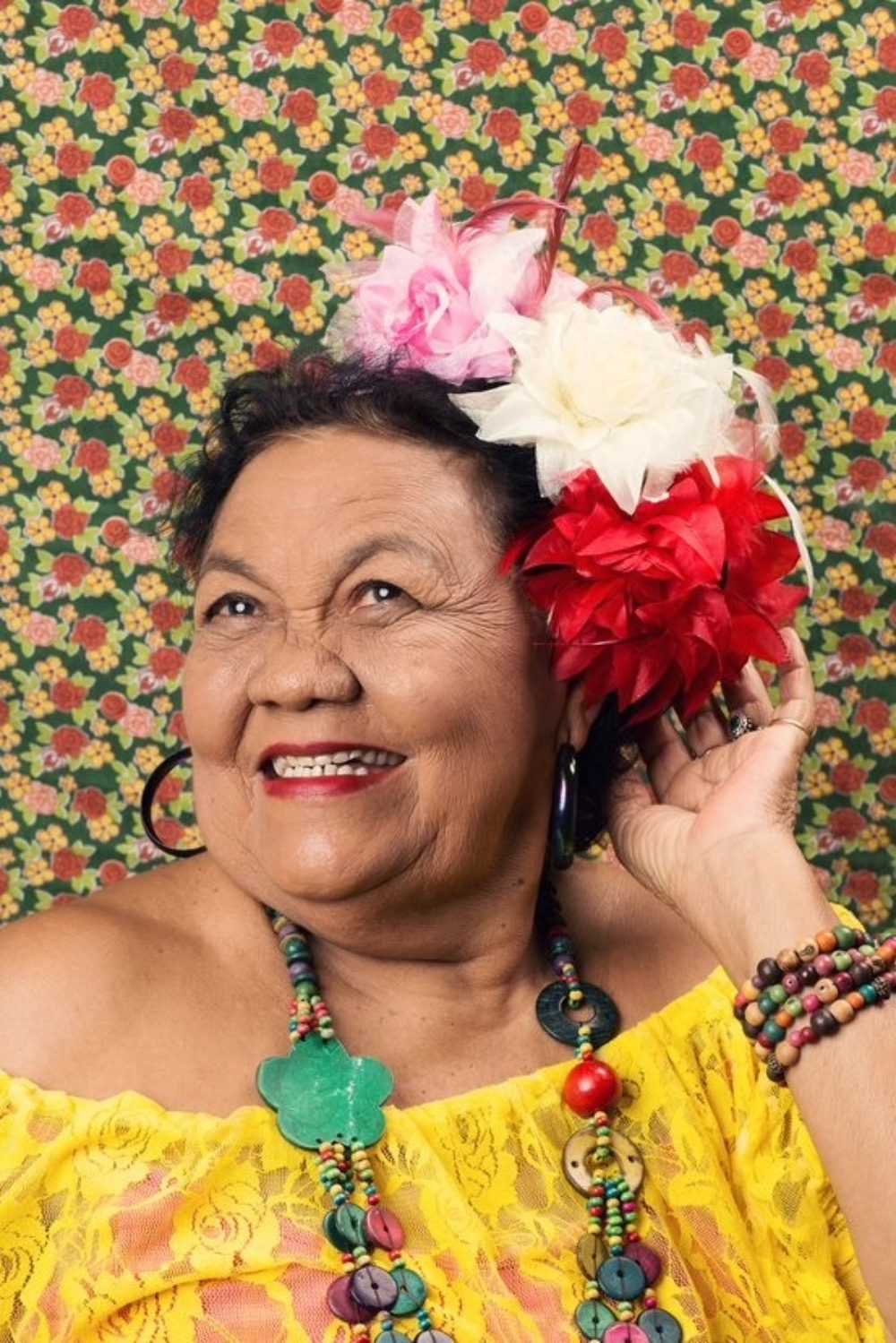
The music program offered fare from all continents, from traditional to modern. One of the biggest surprises was the performance of 80-year-old Brazilian singer and composer Dona Onete, the Queen of Carimbo. She was born in 1936 as Ionete da Silveira Gama. By the time she was 15, she was singing songs from traditional such music genres as samba, quadrille and boi bumba. She taught history and Amazonian studies and conducted research into rhythms, dances and traditions of the region. She helped establish music and dance groups which preserved traditional music and customs. From 1993-96, she served as secretary of culture for the municipality. Onete recorded her first album, Feitiço Caboclo, at age 73, and continued to perform after her retirement. In 2017, she was awarded the Brazilian Ordem do Mérito Cultural.
Sitting in a wheelchair, the very energetic Ms Onete impressed the audience with her self- developed hybrid music genre, carimbo chamegado. Backed by a super funky band made up of mainly young musicians, Onete was the highlights of the first night. And what was she singing about? In a press conference, she told the journalists that 50 percent of the lyrics were about sex and other 50 percent about food. What a woman!
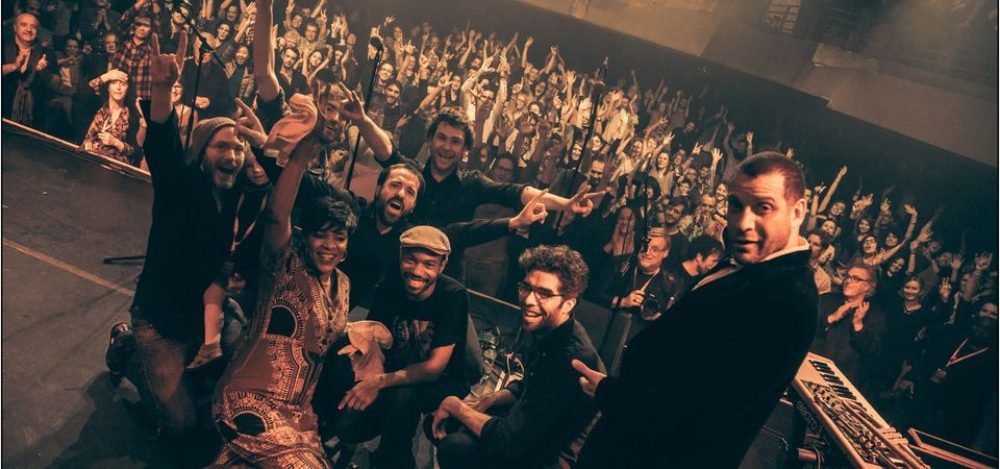
Another highlight was the concert by the group Arat Kilo, an exciting combination of French musicians playing Ethio-jazz, the Malian diva Mamani Keita (Electro-Bamako lp), and singer Mike Ladd from the U.S. The name Arat Kilo is Amharic for four kilometers, referring to the fact that this neighborhood in the Ethiopian capital Addis Ababa is four kilometers from the train station in Addis. This infectious group presented a unique mix of Ethiopian jazz, Afrobeat, funk, traditional Malian vocals and hard-core hip-hop and soul. Check their latest CD, Visions of Selam,which was released in March 2018 on the French label Accords Croisés.
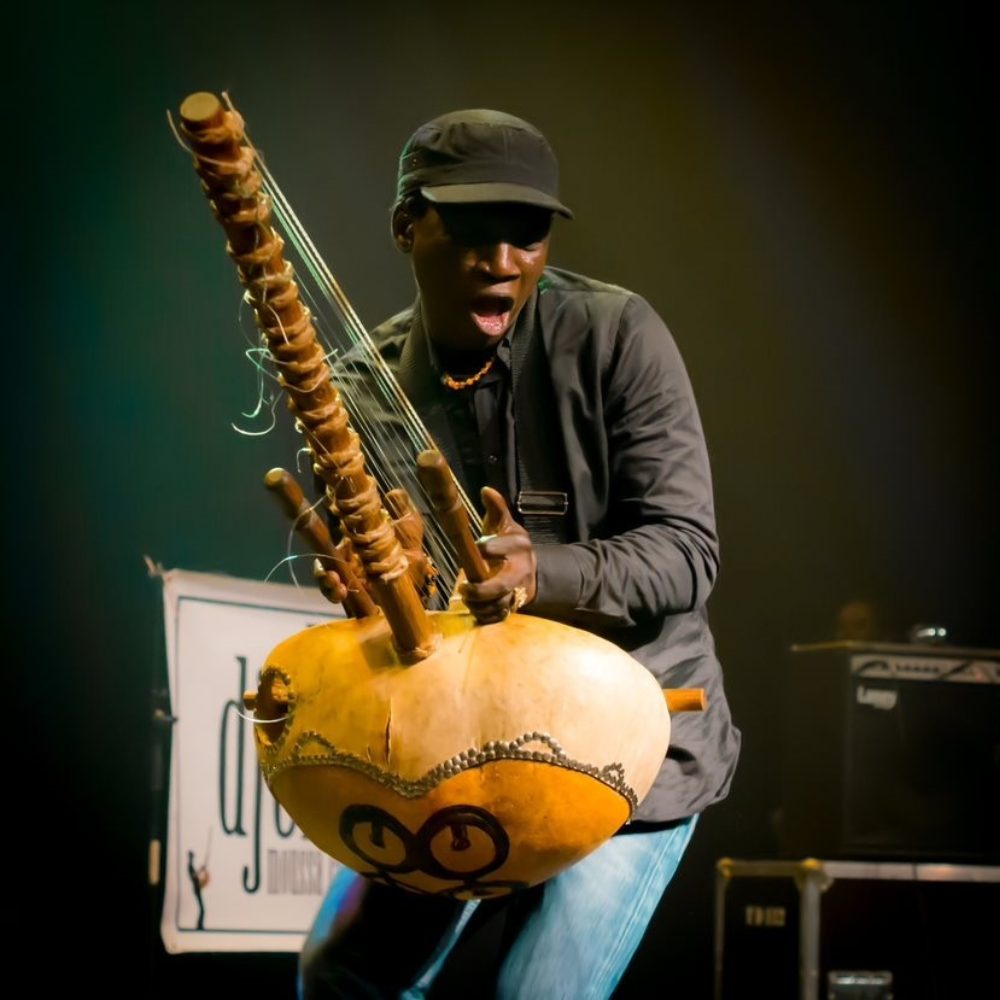
Slightly disappointing was the performance of kora player Djeli Moussa Conde from Guinea-Conakry. His fusion of West African kora music with reggae, rock, funk and jazz generated a lot of energy among the festival goers, many of whom were dancing the whole time. So everybody seemed to be enjoying themselves, but I missed subtlety and catchy melodies.
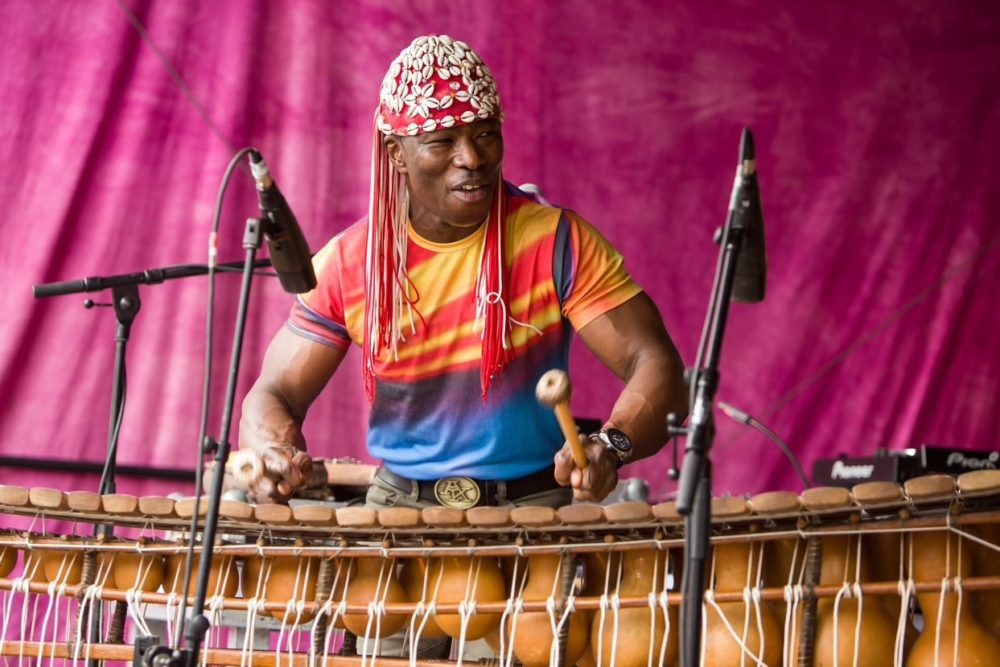
An unexpected surprise came from the duo Guo Gan (China) and Aly Keita (Ivory Coast). Gan, now living in Paris, is a master of the Chinese erhu, while Aly Keita, living in Germany, is a balafon virtuoso. They produced an album titled Peace In the World, an accurate description of their music and message.
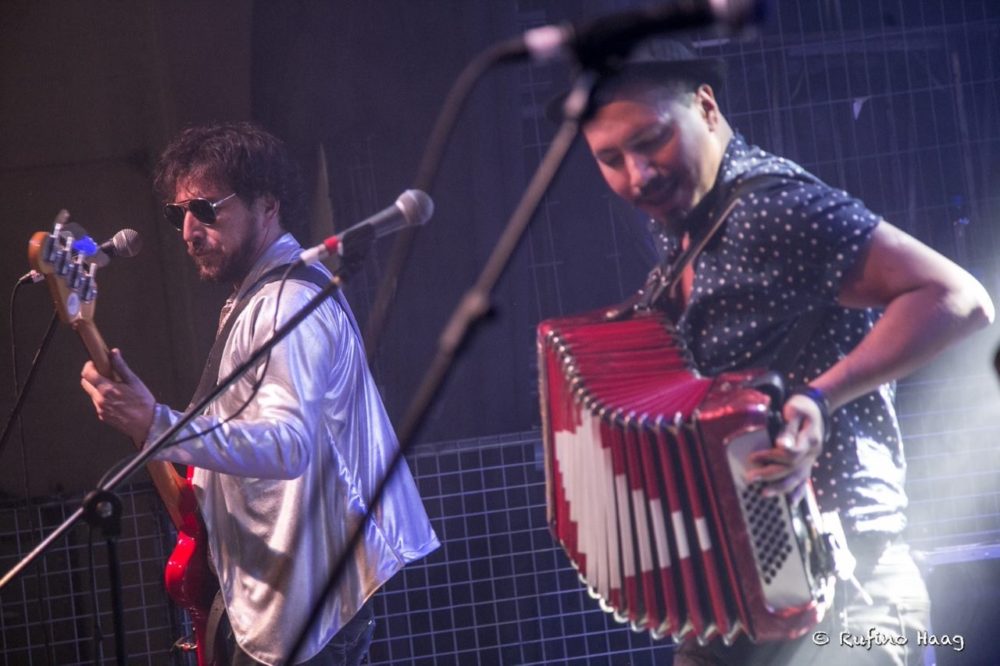
Combo Ginebra, from Chile, the last band on Sunday night, turned out to be the ultimate party band. Their infectious nueva cumbia Chilena rhythms drove everybody crazy and transformed the festival grounds into one huge dance floor, where sitting down was not an option.
Its challenging music program, interesting workshops, extreme friendly staff, and the delicious Sarawak cuisine makes the Rainforest World Music Festival one of the finest music festivals in the world. Looking forward to the 2019 edition.
Terima kasih (Malaysian for "thank you very much")
Bastiaan Springer is producer for The Concert Radio in the Netherlands, and a world music journalist.







